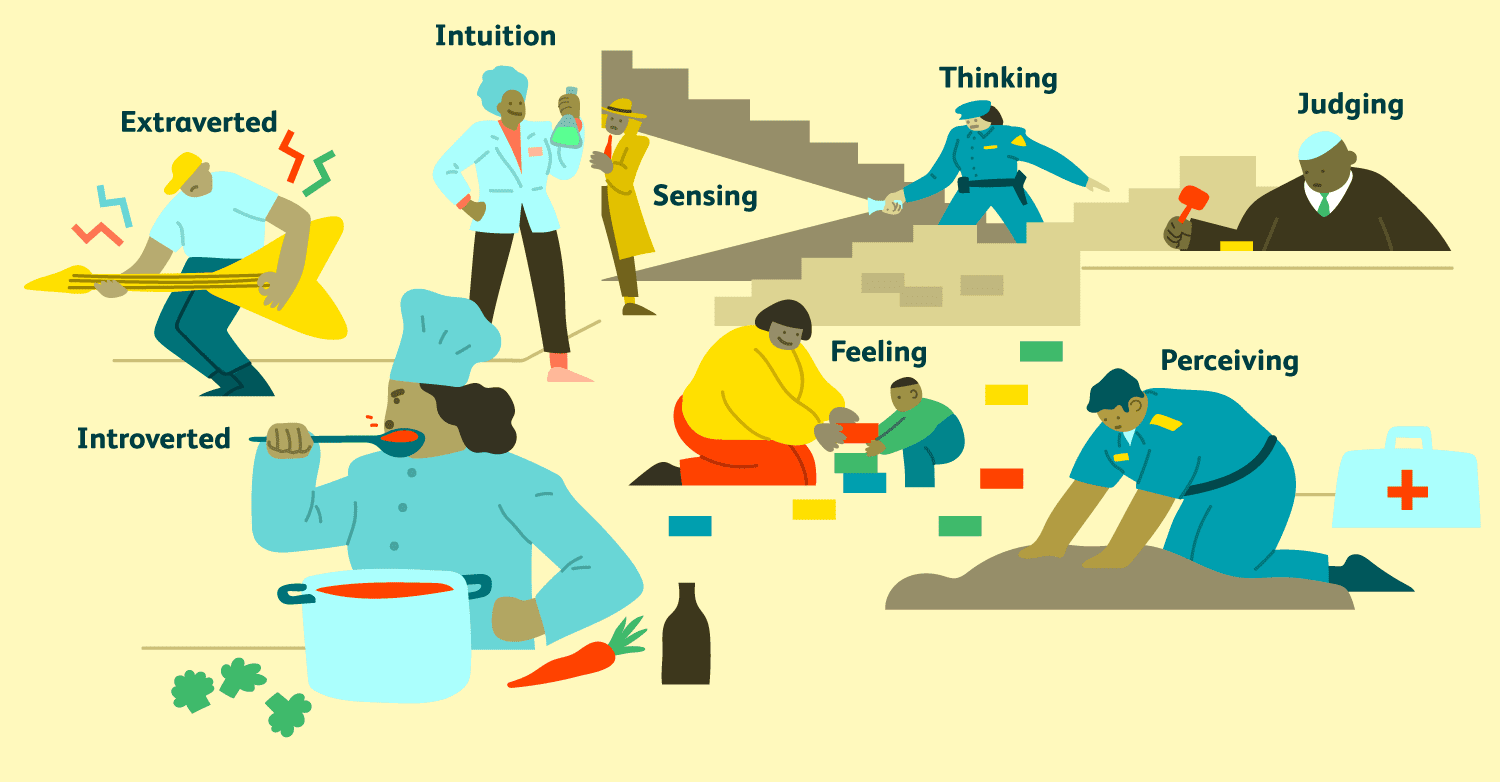
FAQ About Myers-Briggs Personality Type Test

Are there any job preferences or career paths associated with certain Myers-Briggs types?
While the Myers-Briggs Type Indicator (MBTI) does not determine specific career paths or job preferences, certain trends and patterns have been observed among different MBTI types. These observations can provide some general guidance or insights when considering career choices. It's important to note that individual interests, skills, values, and other factors should also be taken into account when making career decisions. Here are some broad tendencies associated with certain MBTI types:
- ISTJ (Introverted, Sensing, Thinking, Judging): ISTJs tend to excel in roles that require attention to detail, organization, and structured environments. They may thrive in careers such as accounting, project management, law enforcement, engineering, and administrative roles.
- ISFJ (Introverted, Sensing, Feeling, Judging): ISFJs often enjoy helping and serving others. They may be well-suited for careers in healthcare, social work, counseling, teaching, and administrative positions that involve supporting and nurturing individuals or communities.
- INFJ (Introverted, Intuitive, Feeling, Judging): INFJs are often drawn to careers that allow them to make a positive impact and align with their values. They may excel in counseling, psychology, writing, social activism, coaching, or careers that involve creativity and understanding others.
- INTJ (Introverted, Intuitive, Thinking, Judging): INTJs typically possess strong analytical and strategic thinking skills. They may excel in fields such as science, technology, engineering, finance, research, entrepreneurship, or leadership positions that involve problem-solving and long-term planning.
- ISTP (Introverted, Sensing, Thinking, Perceiving): ISTPs often have a practical and hands-on approach. They may excel in careers such as mechanics, engineering, computer programming, entrepreneurship, sports, or any field that allows them to work with tools, systems, or technology.
- ISFP (Introverted, Sensing, Feeling, Perceiving): ISFPs often have a strong artistic and aesthetic sensibility. They may be drawn to careers in the arts, design, music, counseling, social work, or other fields that allow them to express their creativity and connect with others on a personal level.
- INFP (Introverted, Intuitive, Feeling, Perceiving): INFPs often seek meaningful work and value personal growth. They may find fulfillment in careers such as counseling, writing, art, psychology, social work, teaching, or advocacy roles that allow them to make a positive difference in people's lives.
